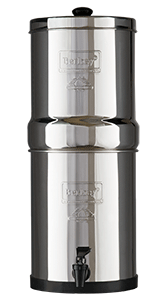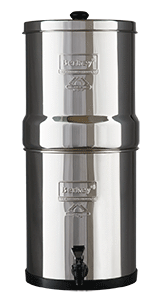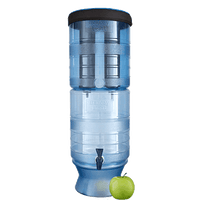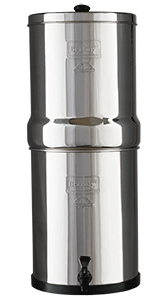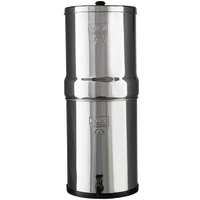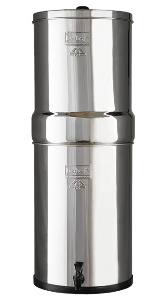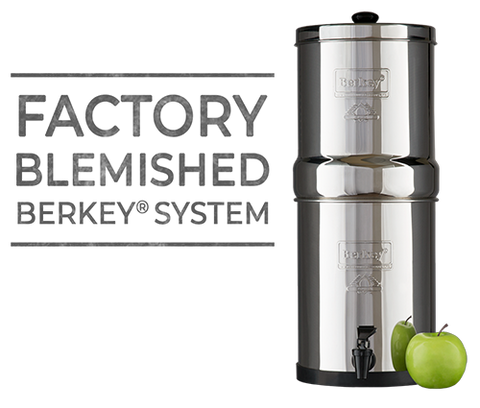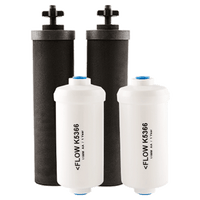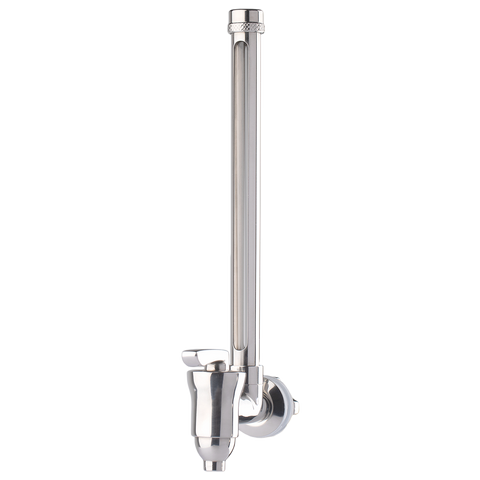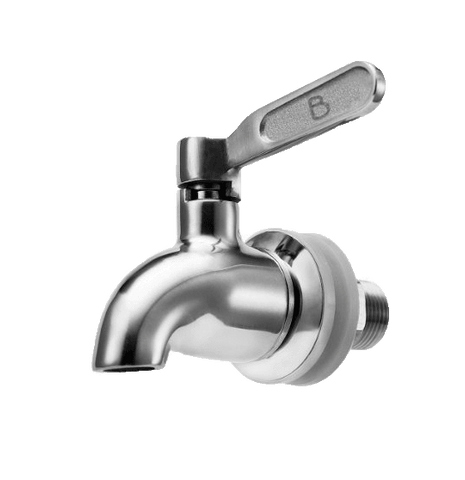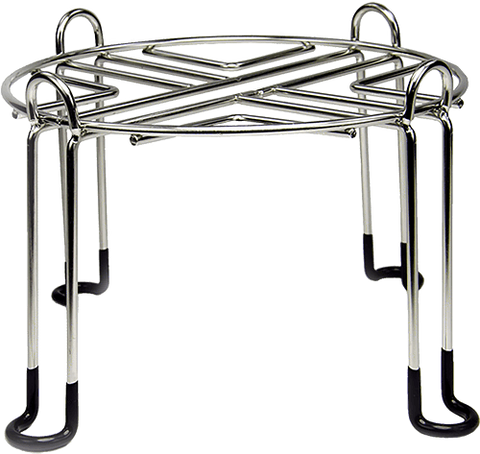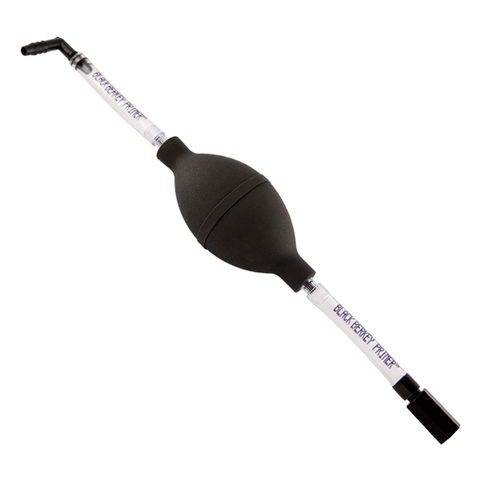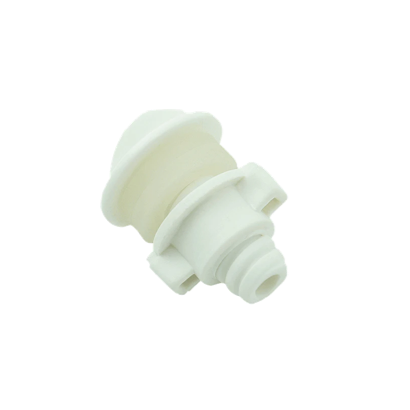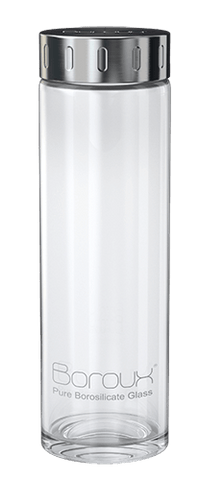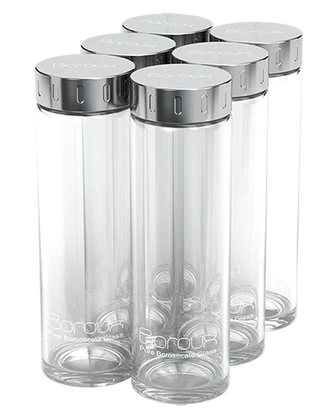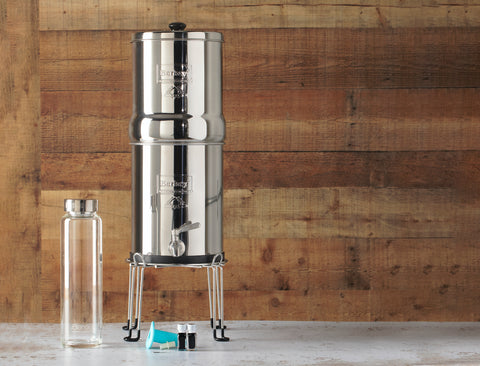Does Berkey Reduce Heavy Metals?
Yes, Berkey reduces 99.9% of all heavy metals from water.
See Independent Lab Test Results.
What are Heavy Metals?
Chemical elements with high densities or atomic weights are considered heavy metals. They have a density five times higher than water. For example, some of the heavy metals are: Aluminum, Antimony, Barium, Beryllium, Bismuth, Cadmium, Cobalt, Chromium 6, Copper, Iron, Lead, Mercury, Molybdenum, Nickel, Vanadium, and Zinc. They are the metallic elements on the periodic table.
Health Risks of Heavy Metals
These molecules can be toxic even at low concentrations. The level of toxicity varies with dosage, exposure route, chemical species (structure of the molecule) and the age, gender, genetics, nutritional status of the person that's being exposed.
The EPA and International Agency for Research on Cancer classifies arsenic, cadmium, chromium, lead, and mercury as human carcinogens and systemic toxicants. They cause damage to multiple organs even at a low exposure. Berkey filters these and more.
These are just a few of the poisonous contaminants and their detrimental affects in your water. We encourage you to research the other heavy metals and what they cause. Depending on which heavy metal, its chemical form, exposure time and dosage, the health issues are numerous. They range from cardiovascular diseases, developmental abnormalities, neurologic and neurobehavioral disorders, diabetes, hearing loss, hematologic and immunologic disorders, and several types of cancer.
Take note that most drinking water deemed "safe" is based on an average adult weight. If you have children or pets the allowable toxin levels may be too high for their little bodies to handle.
Related: Are your children drinking safe water?
Why are Heavy Metals in Drinking Water?
Heavy metals can enter our water sources a variety of ways. Metals occur naturally in the earth and are released through volcanic eruptions or soil erosion. Due to human activity they and their pollutants are released at greater intervals and amounts. Metallic elements are widely used in many industries, therefore our exposure to them is frequent. Some pollutants are easily identified from point sources, or localized pollution, such as a smokestack or chimney or a vehicle's exhaust pipe. Nonpoint sources of pollutants are more dispersed and not as easy to pinpoint where they came from. For example, large areas where pollutants are dispersed into the environment like cropfields, streets, and lawns.
Industrial--cadmium is used to make alloys, pigments, and batteries. Chromium pollution occurs mostly in areas with metal processing, tannery, chromate producing, stainless steel welding, and chrome pigment making facilities. Mercury is used for electrical processes such as in switches, thermostats, and batteries.
Agricultural--arsenic is used in the making of insecticides, herbicides, fungicides, algicides, and veterinary medicine; for ridding animals of tapeworms in sheep and cattle.
Related: Does Berkey Reduce Glyphosate?
Pharmaceutical--Arsenic compounds are used to treat syphilis, yaws, and dysentery. Mercury is used as a preservative for drugs.
Related: Does Berkey Reduce Drugs from Drinking Water?
Pollution from mining, foundries, smelters, and other metal-use businesses affect the environment significantly. These toxins can enter our bodies through ingestion, inhalation, and/or dermal absorption. With the prevalence of heavy metals nearly everywhere it's difficult to completely eliminate from everything, however, every little action taken to be nontoxic is better than nothing. Protecting against toxicity will pay off. One step is to reduce heavy metals from drinking water, therefore reducing the amount of heavy metal ingestion.

How Do Berkey Filters Reduce Heavy Metals?
The cylindrical filters inside Berkey systems, called Black Berkey Filters, use three methods to prevent toxins from entering the lower chamber--which is where the drinking water is stored. The three techniques are microfiltration, adsorption, and ion exchange.
One, particles cannot physically pass through the filter because the media is so dense the pores are minuscule. The black filters are made of a carbon composite that is densely packed.
Two, an ionic barrier is created, filling in the areas in between the pores so that it's even smaller area for particles to pass through or rather for particles to not pass through. It's similar to surface tension to block contaminants.
Three, an ion exchange is when the molecules of the toxin's particles are ionically bonded to the filter's media, to be trapped in perpetuity. Molecules have a certain charge (positive, negative, neutral), and are attracted to their opposite charge. Berkey technology uses that process to switch ions from elements like nitrate, fluoride, sulfate, and arsenic, for similarly charged ions.
The Berkey filtration process is one of a kind and unique to Berkey systems. One of the reasons Berkey does not have certain certifications is because of the top secret ingredients and technology would have to be revealed. Black Berkey Filters can be used on almost any water source to reduce heavy metals.
Berkey Filtration Test Results
Check out the specifications and performance outcomes.
Do Berkey Filters Change Your pH Level
Depending on your water, Berkey may change the pH level

